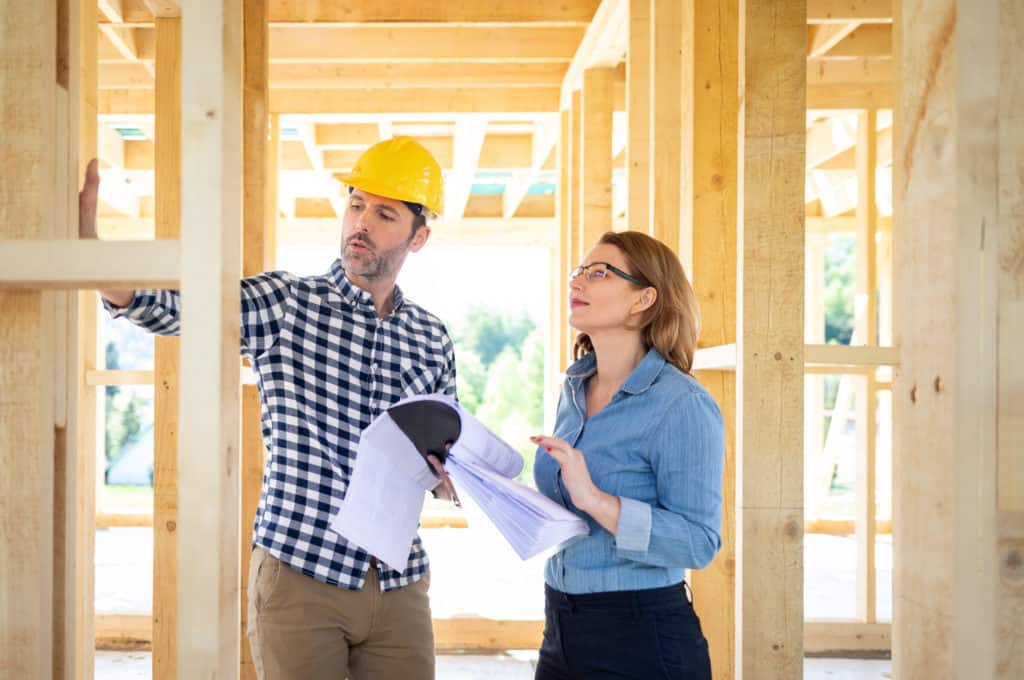Roofing scams are common, and you should know the signs to look out for. They typically occur when homeowners are caught off guard and confused. Whether they cannot pay the bill or don’t know what to do next, victims of these scams are easy targets for unscrupulous roofers. Scammers often promise something they can’t deliver and then take money from unsuspecting homeowners.
How do roofing scams work?
Roofing scams are a common form of fraud. They usually target unsuspecting victims when they’re at their most vulnerable. Scammers often make promises they can’t keep and lie to get their money. They’re usually in a flurry of emotions, confused about what to do next and unsure of what to expect from the company.
Many roofing scams involve exaggerated estimates and claims of storm damage. In many cases, scammers will make these claims to get homeowners to file insurance claims. They’ll rip off shingles or fake hail damage to make their claims more convincing. Then, they’ll pretend to repair roofing, only to cost them more money than they initially thought. Roofing scams also rely on the “storm chaser” tactic, where scammers will travel to areas that have recently experienced severe weather and offer to repair homes for no cost. Typically, these contractors don’t charge insurance deductibles and exaggerate their bids to convince unsuspecting homeowners to settle for a low price.
Another common scam involves a contractor who makes a “today only” offer. These scammers are known to use pressure sales tactics and may even promise an insurance claim before the work is completed. Some scammers may even lie about the damage to your home and then try to entrap you in a legally binding contract.

What is a Storm Chaser Roofer?
Storm chasers follow the storm and may offer you a free roof inspection afterward. Storm chasers are often a bad idea. They only want to do a job if it’s easy. If you don’t want to be taken advantage of, you should look for someone else.
Ask for references if you’re unsure whether a storm chaser is a reliable roofer. A storm chaser may have a temporary office or phone number or use the name of a local company to attract customers. Ask for a driver’s license, verify their credentials, and check their license plates to ensure they are legitimate businesses.
Storm chasers are roofing contractors who follow a severe storm hoping to do lots of repair work quickly. A bad storm chaser will often make the mistake of rushing their repairs, resulting in shoddy work. This type of roofer may also take the homeowner’s money and run.
The low-starting bid scam
The low-starting bid roofing scam is a common scam that targets homeowners without any roofing experience. The scammer offers a low price but then charges a homeowner far more once work has begun. Many scammers use excuses such as rising material costs or hidden damage to lure people into signing contracts.
Another common roofing scam involves an unsolicited salesman posing as a roofing contractor. Typically, the scammer shows up unannounced on your doorstep, offering meager rates in exchange for a contract. The contractor will then pressure you into signing a contract. During this time, they may even tear off shingles and cause damage to your roof while pretending to check it out.
Scammers also target homeowners whose storm has recently hit. These individuals will offer to replace a home’s roof at a low price if the homeowner files a claim with their insurance company. The scammer will then take the homeowner’s money and disappear without completing the job. Luckily, these scams are common and can be prevented.
Mystery damage scam
Mystery damage roofing scams are unfortunately becoming more and more common. Roofers will show up after a storm and claim to have found damage on your roof that you weren’t aware of. They may even gesture vaguely to the damage and then disappear without warning. If you’re approached by a roofer claiming to have found damage on your roof, it’s best to stay away and find a different contractor.
Another red flag is a contractor who requests money for a free roof inspection. These roofers may claim that they have seen other roofs with similar problems. If they don’t have the expertise to inspect your roof, you should be wary of working with them.
Another red flag is that if a roofer asks to inspect your roof from a car, they may be trying to trick you. If you feel the roofer is overly eager to get your money, you should walk away and seek a different contractor. You should always get a second opinion and don’t agree to anything based on their sales approach.

Insurance fraud scam
Every homeowner should be aware of several types of insurance fraud. One of these is churning, which involves insurance agents convincing customers to buy policies that are not necessary or that cost more than the current policy. This scheme allows the agent to collect a premium even after the client cannot claim on the insurance.
If you think you’ve been a victim of insurance fraud, you should report the incident to the local authorities or the state’s insurance fraud bureau. In some cases, you may even be eligible for a reward for reporting the crime. You can also contact the National Insurance Crime Bureau (NICB), a nonprofit organization that partners with insurance companies and law enforcement to prevent and combat insurance fraud. The NICB website is a valuable source of information and tips on protecting yourself against this criminal activity.
There are many types of insurance fraud, from a homeowner who fakes a burglary to a doctor who bills the insurer for services they did not provide. To further complicate matters, a driver may stage a fake accident and hire an evil doctor or attorney to handle it. In other cases, a worker may collect workers’ compensation benefits without having a legitimate claim on their insurance policy. These types of fraud are common, but there are some common sense measures every homeowner should follow to avoid becoming a victim.
High-pressure sales
When choosing a roofing contractor, homeowners should always do their research. An excellent way to avoid being taken advantage of by a high-pressure salesman is to compare different companies and get a feel for the industry. In addition, homeowners should never forget to sign a legal agreement before any work can begin. This way, if something goes wrong, there is no way to back out.
One common scam involves door-to-door salespeople. Some salespeople will show up unexpectedly and promise to do a free roof inspection. However, they’ll use high-pressure sales techniques to convince you to spend money on a roofing repair they cannot fix. For example, some of these salespeople may hit your roof with a hammer or tear off shingles to simulate the appearance of wind or hail damage. This high-pressure sales tactic only works if you trust the person, so it’s essential to research them well.
Another high-pressure sales tactic scammers use is attempting to pressure homeowners into signing contracts. This tactic can cause homeowners to sign a contract too quickly without considering the project’s total cost. A reputable roofing contractor will never pressure you into signing a contract before you have thoroughly thought through the project details.

Cheap material scam
Scammers who offer cheap material roofing often prey on homeowners who don’t understand the roofing replacement process. The scam starts with an estimate that is too good to be true. Then, as work begins, “unforeseen problems” crop up, and the homeowner is billed far more than they initially agreed to pay.
Some contractors will charge large down payments to begin work, which is usually a sign of a scam. The money is usually used to cover the materials needed to complete the project. However, a contractor should never ask for more than twenty percent of the total bill upfront. Moreover, it is best to avoid contractors who ask for up to fifty percent down payments.
Another common scam involves a contractor who shows up on your property unannounced and mentions that he has recently completed another roof. The con artist will claim that he has extra materials available nearby. After a few months, the material will have worn off and will not be suitable for your roof. You should stay away from such a contractor and make sure to get a second opinion.
Large down payment scam
If a roofer asks for a large down payment, they will likely run a scam. This type of contractor will demand money in advance and disappear after the contractor receives the money. Instead, demand that the contractor deliver the materials before accepting any money.
Another common roofing scam involves the homeowner’s insurance company. The insurance company will send out an adjuster to assess the damage to the roof. Once the adjuster has inspected the damage, the insurance company will issue a check for a portion of the bill. In some cases, the roofing contractor bills the insurance company directly.
Roofing scam artists often ask for a large down payment upfront without performing any work or delivering the materials. The scammers may claim that they need this money to purchase materials or cover labor expenses, but they disappear with the money. If a roofer asks for a large down payment without doing any initial work or buying materials, this is a clear sign that they are a scam artist.



